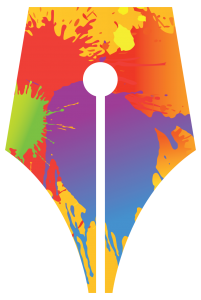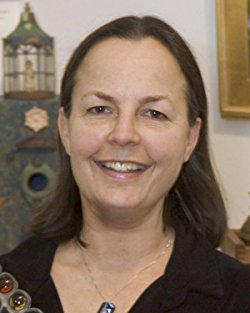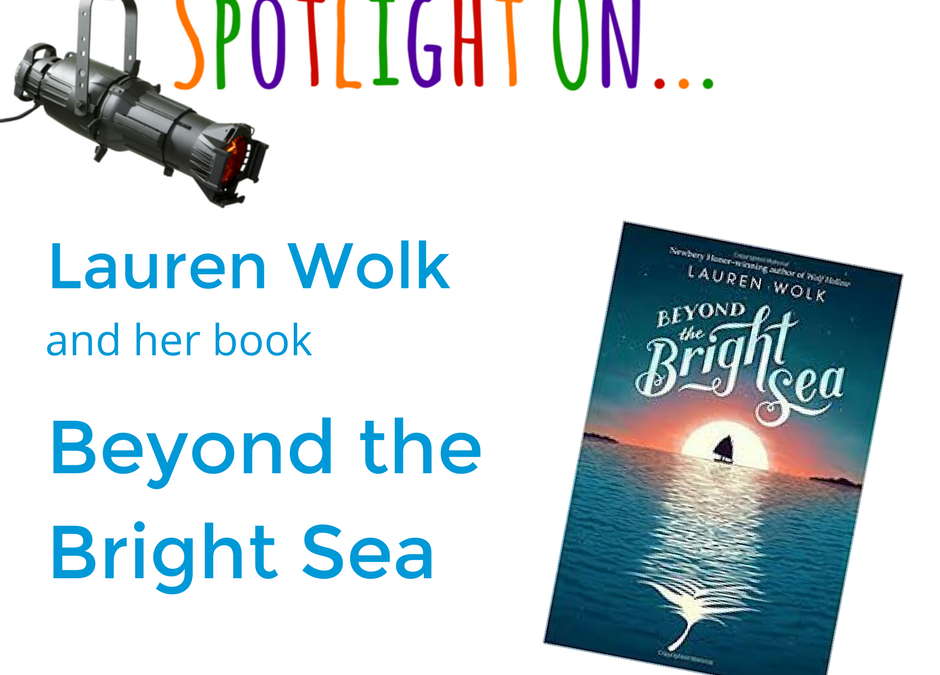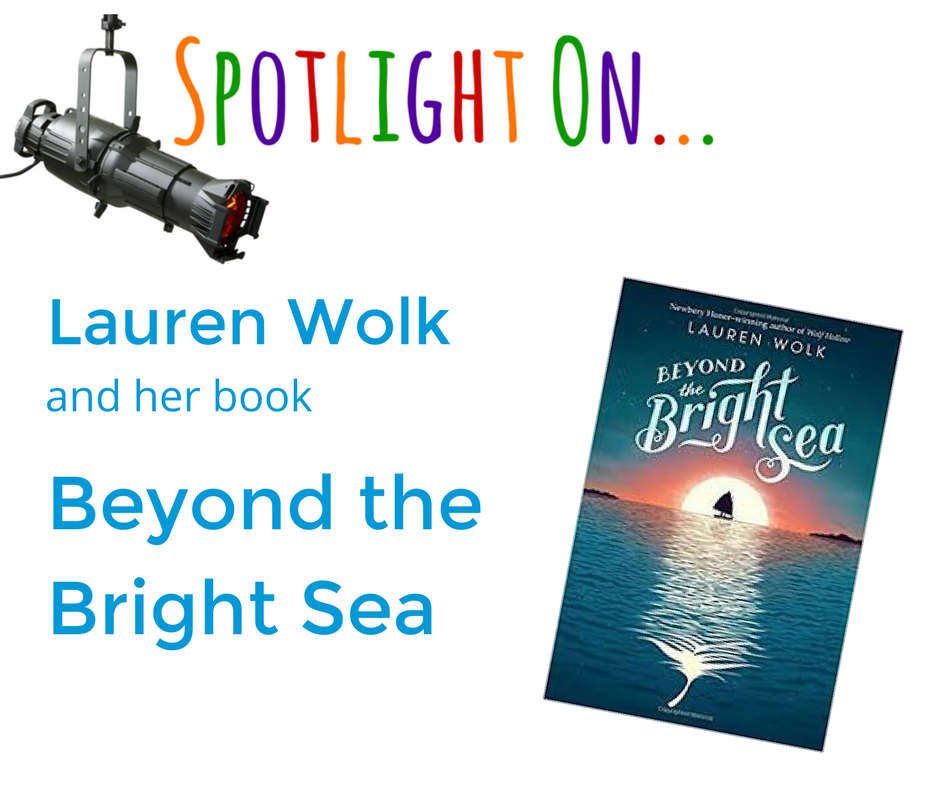This month, we’re interviewing Lauren Wolk about her book, Beyond the Bright Sea. Lauren talks to us about her writing as a child, how she starts constructing her novels, and the role research plays in writing fiction.
Keep reading! As always, we’ve got a writing challenge for you, a fantastic interview, and some updates about Society of Young Inklings. Want to catch up? Check out last month’s Ink Splat here.

Writing Challenge
Imagine a setting where you’d like to spend time. Consider the sights, smells, sounds, taste, and feel of the place. Write a description of the setting, and in your very last sentence, introduce a character who fits perfectly into the space you’ve created.
Submit your responses by emailing submit@younginklings.org and you might be published on our website!
An Interview with author Lauren Wolk
Did you write when you were young? Do you remember the moment when you realized you wanted to be an author?
I wrote as soon as I knew how, but writers write long before they know how to write. How’s that for an answer? It’s important for young people—for all people—to understand that the pen or the paintbrush or the scalpel or the computer or any tool is only that: a tool. A pen—or even an alphabet, for that matter—doesn’t make someone a writer. It simply makes it easier for a writer to express herself. It is the tool she finds most effective: the best method to convey her ideas. The moment I first looked at the ordinary and saw the extraordinary, I knew I had something worth saying. The moment I chose ink and paper as my best tools, I revealed the writer I’d been since the moment I was born, if not before. All kids, all people, have important things to share. They need to be given all the tools possible so they can choose the ones that work best for them.
Reading about Osh, Crow, Miss Maggie, and the other characters in Beyond the Bright Sea felt like meeting real people in real life. Do you have a process for developing characters that creates that special spark of believability?
I always start with setting. I choose a place where I want to spend time, and I spend time there (while I’m cooking, driving, gardening, in the shower, sleeping, making art), so I feel at home, before I begin to write. The characters come to join me there, one by one, and I spend time with them, too. At least with the protagonist. I watch and listen until I know those characters well enough to follow them into the story. If they say or do something that doesn’t ring true, I can hear it. See it. Feel it. And so I change it. Mostly, though, they are strong enough and stubborn enough to stay in character with very little guidance.
Was the process of writing Beyond the Bright Sea smooth sailing? Did you ever hit rough water along the way, and if so, how did you work through the challenges you faced?
For me, conducting research means walks a fine line. I rarely start research before I start to write. I look for answers to my own questions as I move along. Doing things in that order means that the story directs the research instead of the other way around. In Beyond the Bright Sea, I discovered some historical facts that begged me to alter the storyline, and I had to be careful that the truth didn’t lead the book astray. For instance, when I learned that Captain Kidd had spent time in the waters around the islands where I had set the book, I saw ways to put him into the story. But I had to be very careful to include only what worked and nothing that didn’t. My characters helped me make decisions about how much I should be influenced by my research. They drew my attention back to them and their own personal stories over and over again.
You clearly take care with the words you choose. Do your just-right words tend to show up spontaneously when you draft, or do you have a method for crafting your words during revision?
I’m a poet. I love figurative language and try very hard to put the right words in the right order. I love the rhythms of the language. I strive for language that is fresh, evocative, memorable. And I get into a zone of concentration and focus when I write, so the words tend to come from a pretty deep well. And I revise as I write, so I make a lot of changes as I go, listening to the language (both in my head and out loud), stopping to spend time on places that feel bland or lazy before I get too far ahead of myself. When the book is done, I go back and revise again. And then, with my editor, again. I want every word to be, as you put it, “just-right.”
What is your favorite thing about writing?
All of it.
If you could meet a fictional character, who would you want to meet? How would you spend your time with this character?
Well, that’s not a fair question. Just one character? Boy, oh boy. I suppose if I had to choose I’d choose Karana from Scott O’Dell’s Island of the Blue Dolphins. I loved that book so much. I’d like to sit quietly with her and talk about the two flip-sides of her life on the island: independence and loneliness. And how both of them made her stronger.
If you could tell your younger writing self something, what would it be?
I don’t think I’d tell my younger writing-self anything much. The obvious: read as much as you can (which I was already doing); write as much as you can (which I was already doing). But I would tell that girl not to worry so much about whether people liked her for who she was. I’d tell her that the things that made her different from everyone else would be the very things she’d love most about herself as she got older. I’d tell her that the things that set her apart were someday going to give her Annabelle and Crow and the other characters in her books. I’d tell her to rest easy about all that.
Society of Young Inklings News

- The Inklings Book Contest is here! Submit your work by March 15. We can’t wait to read it!
- Starting February 12, we’re hosting Online Writer’s Circles! Join a small circle of dedicated writers who will encourage, provide specific feedback, and inspire you. Your group will be facilitated by a pro-writer and mentor through an online video chat.
- So, you’ve finished your story or poem… Now what? Submit to our Editorial Letter Program. Receive professional feedback from a writer who is passionate about writing craft and who can offer you concrete strategies for taking your work to the next level.
A special thanks to Lauren Wolk!
 Lauren Wolk is a poet, novelist, and visual artist. She was a writer at the St. Paul American Indian Center, a senior editor with a publisher in Toronto, an English teacher at Sturgis Charter School, and Assistant Director at Cape Cod Writers Center. She is now Associate Director at the Cultural Center of Cod. In 1999, Random House published her first adult novel, Those Who Favor Fire. Her second novel, Forgiving Billy, was twice nominated for the Pushcart Editor’s Book Award and won the Hackney Literary Award. She has since written two novels for young readers—Wolf Hollow (Dutton, 2016) and Beyond the Bright Sea (Dutton, 2017)—and is at work on a third. Wolk lives on Cape Cod.
Lauren Wolk is a poet, novelist, and visual artist. She was a writer at the St. Paul American Indian Center, a senior editor with a publisher in Toronto, an English teacher at Sturgis Charter School, and Assistant Director at Cape Cod Writers Center. She is now Associate Director at the Cultural Center of Cod. In 1999, Random House published her first adult novel, Those Who Favor Fire. Her second novel, Forgiving Billy, was twice nominated for the Pushcart Editor’s Book Award and won the Hackney Literary Award. She has since written two novels for young readers—Wolf Hollow (Dutton, 2016) and Beyond the Bright Sea (Dutton, 2017)—and is at work on a third. Wolk lives on Cape Cod.
You can learn more about Lauren at her website and you can follow her on Facebook and Twitter.



